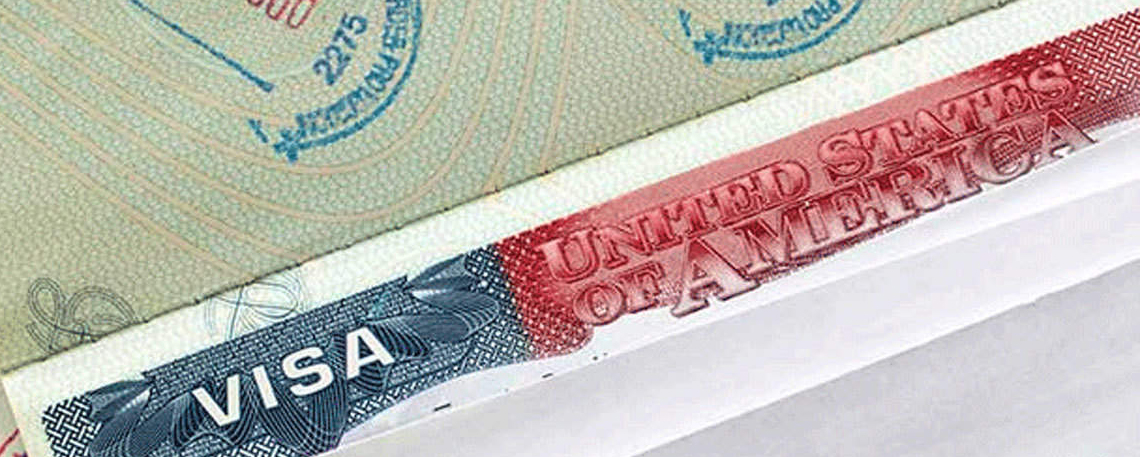Filing An H-1B Application in 2020? In-house vs. using An Immigration Law Firm

Over the past few years, more H-1B visa applications have been denied than ever before. In the past, qualified applicants only needed to fill out paperwork and pay appropriate fees to get their visas, but securing an H-1B visa is currently much more difficult.
Today, H-1B visa applications are more heavily scrutinized, and more requests for evidence are issued by the United States Citizenship and Immigration Services (‘USCIS’). Immigration attorney Poonam Bhuchar, Esq. understands the increased difficulties with H-1B approvals, and she knows how to avoid many of the common pitfalls that can be detrimental to an applicant’s success.
When the H-1B approval process was easier, employers often relied on in-house counsel to handle visa application matters, but with the recent decrease in H-1B approvals, only an attorney who focuses on immigration law and securing visa approvals should handle the application process.
H-1B Approval Cap
Congress has capped H-1B visas to 65,000 per year, but not all H-1B visa applicants are subject to that cap, such as those who have advanced education degrees and those seeking to renew their visas. The cap makes securing an H-1B visa application approval more difficult, which is why it is important that your application is complete, accurate, and provides all the necessary information.
When applications are submitted with mistakes or incomplete information, visas are often denied, or the applicant receives a request for evidence (‘RFE’) from the USCIS. Obtaining an H-1B visa is even more challenging after a denial or request for evidence (‘RFE’).
Request For Evidence
RFEs result in more work for the applicant and a lengthier application process. An RFE means that additional evidence to show a visa. H-1B attorneys know how to complete visa applications with strong supporting evidence so that you are less likely to receive an RFE, which will save you time, money, and resources.
Reasons For Denial
Visa applications are denied for many reasons. See below for some of the most common reasons your H1-B application may be denied.
- Failing to submit appropriate filing fees. The filing fees are based on particular facts, such as how many employees your employer has and how many of them are H-1B holders. Applications are frequently rejected and sometimes denied for insufficient filing fees.
- Failing to respond to an RFE. When you are presented with an RFE in response to your application, your visa will not be approved unless you provide all of the required evidence.
- Failing to establish an employment relationship. The USCIS requires that a true employer/employee relationship exists. To be approved, your application must demonstrate that the employer has the right to control the employee’s work throughout the employment. It is even trickier to prove such a relationship when the employee is the owner of the sponsoring business, but it can be done under some circumstances.
- Problems with status maintenance. For employees who have had previous legal status in the U.S., if there is a history of problems with the employee’s status maintenance, the visa application may be denied.
- Problems with evidence of specialty occupation and qualification. Applications are often denied when there is not enough evidence demonstrating that the position is a specialty occupation. They are also denied when there is not enough evidence to show that the employee is qualified to provide those specialty services.
Appealing A Denied Application
H-1B denials are rarely appealed. When applications are denied, employers often decide to submit a new application with more information and evidence, rather than appeal a denial. If you believe that a mistake was made when your application was denied, however, it may be beneficial to appeal that decision.
H-1B Attorney Versus In-house Counsel
As previously mentioned, application fees are expensive, and employers sometimes feel compelled to save money by asking in-house counsel to file H-1B applications. Unfortunately, going through in-house counsel to save money often ends up costing employers more in the long run. Attorneys who focus their practice on H-1B applications and other immigration matters, know what information needs to be provided for a successful application. They also know how to avoid common errors and issues that may lead to RFEs and denials of applications.
If you need help filing an H-1B or you have received an RFE or application denial, contact Bhuchar Law Firm to schedule a consultation. Our practice is dedicated to immigration-related legal matters, and we provide our clients with high-quality and efficient legal representation. We know the law, and we work to secure the best possible outcome for our clients in every matter.
- How to Prepare for Your First Consultation With a US Immigration Lawyer
- How Businesses Can Utilize H-1B1 Visas
- H-1B Approval Rate And Its Industry Impacts
- Filing An H-1B Application in 2020? In-house vs. using An Immigration Law Firm
- Benefits Remain After Increase in EB-5 Minimum Investment Requirements